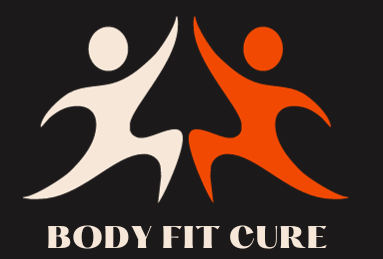Exercise is often associated with physical fitness and weight management, but its benefits go beyond just the body. Research has shown that exercise also has a profound impact on brain health and cognitive function. Regular physical activity can boost brain power, improve memory, enhance focus, and promote overall cognitive function. In this article, we will explore how exercise strengthens the brain and unveils its many benefits for brain health.
By incorporating exercise into your routine, you can optimize your brain’s performance and sharpen your mental acuity. Let’s dive into the science behind the brain-boosting effects of exercise and discover how you can harness its power for a healthier and sharper mind.
Key Takeaways:
- Exercise has a profound impact on brain health and cognitive function.
- Regular physical activity can boost brain power, improve memory, and enhance focus.
- By incorporating exercise into your routine, you can optimize your brain’s performance and sharpen your mental acuity.
Unveiling the Brain-Boosting Effects of Exercise
Physical activity and cognitive performance are intricately connected. Numerous studies have demonstrated the positive impact of exercise on cognitive function. Exercise not only improves memory and attention but also enhances executive functions such as decision-making and problem-solving. Additionally, exercise has been found to stimulate the growth of new brain cells, improve brain structure and function, and even protect against age-related cognitive decline.
This section will delve into the neurobiological mechanisms through which exercise affects the brain’s structure and function, as well as discuss the significant research evidence supporting the brain-boosting effects of exercise.
The Connection Between Physical Activity and Cognitive Performance
The importance of physical activity for brain function cannot be overstated. Engaging in regular exercise has been shown to improve cognitive performance in various domains. It enhances memory consolidation, leading to better retention of information. Exercise also boosts attention and concentration, allowing individuals to stay focused for longer periods. Moreover, regular physical activity has been linked to improved executive functions such as decision-making, problem-solving, and multitasking.
Neurobiological Mechanisms: How Exercise Affects the Brain’s Structure and Function
The brain-boosting effects of exercise are rooted in its impact on neurobiological mechanisms. When we exercise, our body releases chemicals called endorphins that elevate mood and reduce stress. These endorphins also promote neuroplasticity, which is the brain’s ability to change and adapt. Through neuroplasticity, exercise strengthens existing neural connections and builds new ones, enhancing overall brain function.
Additionally, exercise stimulates the production of brain-derived neurotrophic factor (BDNF), a protein that plays a crucial role in promoting the growth and survival of neurons. BDNF also supports the formation of new connections between neurons, improving communication within the brain. As a result, regular exercise helps maintain and improve brain structure and function, leading to enhanced cognitive abilities.
Research Evidence: Significant Studies on Exercise and Brain Health
Scientific research has consistently shown the positive impact of exercise on brain health. A study conducted at the University of British Columbia found that aerobic exercise increases hippocampal volume, a brain region associated with memory and learning. Another study published in the Journal of Applied Physiology demonstrated that a single session of moderate-intensity exercise can improve cognitive function, attention, and information processing speed.
Moreover, a long-term study conducted by the Rush University Medical Center revealed that physically active individuals have a significantly lower risk of developing cognitive decline and dementia compared to their sedentary counterparts. These findings highlight the long-term protective effects of exercise on brain health.
| Study | Findings |
|---|---|
| University of British Columbia | Aerobic exercise increases hippocampal volume, improving memory and learning |
| Journal of Applied Physiology | A single session of moderate-intensity exercise improves cognitive function and attention |
| Rush University Medical Center | Physically active individuals have a lower risk of cognitive decline and dementia |
How Exercise Strengthens Your Brain

Exercise strengthens the brain through various mechanisms. Regular physical activity has been shown to have brain-boosting effects, enhancing cognitive function and promoting overall brain health.
Endorphin Release and Mood Improvement
One of the key ways exercise impacts the brain is through the release of endorphins. Endorphins are chemicals produced by the body during exercise that elevate mood and create a sense of well-being. This natural mood enhancement not only helps reduce stress and anxiety but also promotes neuroplasticity, the brain’s ability to form new connections and adapt to new experiences. By improving mood and increasing neuroplasticity, exercise enhances cognitive function and supports overall brain health.
Enhancing Neurogenesis: The Growth of New Brain Cells
Exercise stimulates the growth of new brain cells, a process known as neurogenesis. This is particularly important for learning and memory, as it allows the brain to create new pathways and strengthen existing ones. Neurogenesis also plays a crucial role in protecting the brain against age-related cognitive decline and neurodegenerative diseases. By engaging in regular physical activity, you can actively promote the growth of new brain cells, leading to improved cognitive function and a stronger, healthier brain.
Increased Blood Flow and Brain Oxygenation
Physical activity increases blood flow to the brain, ensuring optimal oxygenation and nutrient delivery. This is vital for brain health and function as the brain relies on a constant supply of oxygen and nutrients to perform at its best. Improved blood flow to the brain enhances overall cognitive function, enhancing memory, attention, and problem-solving abilities. By engaging in exercise, you can optimize blood flow to the brain, supporting its health and boosting its functionality.
| Benefit | How Exercise Strengthens the Brain |
|---|---|
| Endorphin Release and Mood Improvement | Promotes neuroplasticity and enhances cognitive function |
| Neurogenesis: Growth of New Brain Cells | Vital for learning, memory, and protection against cognitive decline |
| Increased Blood Flow and Brain Oxygenation | Optimizes cognitive function, improves memory, attention, and problem-solving abilities |
Maximizing Cognitive Benefits Through Workout Routines
To maximize the cognitive benefits of exercise, it’s important to incorporate specific workout routines. By targeting brain health and cognition, you can optimize your brain function and enhance cognitive abilities. Here, we provide practical tips and guidance on how to design an exercise routine that maximizes cognitive benefits.
One key aspect of workout routines for brain health is cardiovascular exercises. These activities, such as running, cycling, or swimming, increase blood flow to the brain, delivering oxygen and nutrients that are vital for optimal cognitive function. Regular cardiovascular workouts have been shown to improve memory, attention, and overall cognitive performance.
In addition to cardiovascular exercise, strength training plays a crucial role in optimizing brain function. By engaging in resistance exercises, such as weightlifting or bodyweight exercises, you can boost neuroplasticity, which is the brain’s ability to adapt and reorganize itself. Strength training has been linked to improved executive functions, such as decision-making and problem-solving skills.
“Exercise is a powerful tool for strengthening the brain and enhancing cognitive abilities. By incorporating specific workout routines, individuals can maximize the cognitive benefits and optimize their brain function.”
Consistency and regularity are key factors in maintaining and optimizing brain function through exercise. It’s important to establish a routine that you enjoy and can stick to in the long term. Aim for a balanced exercise program that includes both cardiovascular workouts and strength training, along with other activities that promote overall health and well-being.
| Exercise Type | Benefits |
|---|---|
| Cardiovascular Exercises | – Increases blood flow to the brain – Enhances memory and attention – Improves cognitive performance |
| Strength Training | – Boosts neuroplasticity – Improves executive functions – Enhances problem-solving skills |
By adopting a well-rounded exercise routine that includes both cardiovascular workouts and strength training, you can maximize the cognitive benefits of exercise and optimize your brain function. Remember to be consistent, enjoy the process, and make exercise a regular part of your daily life for long-term brain health.
Real Life Applications: Exercising for Mental Clarity and Focus

Exercise has real-life applications when it comes to enhancing mental clarity, focus, and cognitive abilities. Engaging in physical activity before studying or working can improve concentration, productivity, and information retention. Research has shown that even a short workout session can have immediate brain-boosting effects, leading to improved cognitive performance.
Physical Activity as a Study or Work Boost
When faced with a demanding study session or a challenging work task, engaging in physical activity beforehand can help prime the brain for optimal performance. Exercise increases blood flow to the brain, delivering essential oxygen and nutrients that enhance cognitive function. It also stimulates the release of endorphins, neurotransmitters that promote a positive mood and reduce stress and anxiety, allowing for improved focus and concentration.
“Taking a break to exercise has become an integral part of my study routine. I find that after a quick workout, my mind feels refreshed, and I can concentrate better on my coursework.” – Jane, a college student
Whether it’s a brisk walk, a quick yoga session, or a high-intensity interval training (HIIT) workout, engaging in physical activity before diving into a study or work session can help optimize cognitive performance and enhance productivity.
Exercise and Its Impact on Creativity and Problem-Solving
Exercise is not only beneficial for academic and professional pursuits but also for creative endeavors. Engaging in physical activity has been shown to boost creativity and problem-solving skills. When we exercise, the brain releases chemicals that stimulate neural connections, enhancing cognitive flexibility and promoting divergent thinking. This creative boost can lead to innovative ideas, unique solutions to problems, and enhanced artistic expression.
“Whenever I feel stuck in my creative process, I go for a run or practice yoga. It helps clear my mind and provides a fresh perspective, allowing me to approach my work with renewed inspiration.” – Mark, a graphic designer
Whether you’re an artist, writer, or musician, incorporating exercise into your routine can unlock your creative potential and expand your problem-solving abilities.
Reducing Risk of Cognitive Decline with Regular Exercise
Regular exercise has been shown to play a significant role in reducing the risk of age-related cognitive decline and neurodegenerative diseases such as Alzheimer’s. Physical activity promotes the growth of new brain cells and strengthens neural connections, forming a cognitive reserve that can delay the onset of cognitive decline. Additionally, exercise improves cardiovascular health, reducing the risk factors associated with cognitive decline, such as high blood pressure and obesity.
“As I entered my golden years, I made exercise a priority in my life. Not only do I feel physically healthier, but I also notice that my memory and cognitive abilities are sharper than ever before.” – Sarah, a retired teacher
By incorporating regular exercise into your lifestyle, you can protect and strengthen your brain, reducing the risk of cognitive decline and maintaining cognitive function well into old age.
Exercise has remarkable brain-boosting effects, enhancing mental clarity, focus, and cognitive abilities. Whether you engage in physical activity before studying, working, or pursuing creative endeavors, exercise can optimize your brain’s performance and unlock your full cognitive potential. Furthermore, regular exercise reduces the risk of cognitive decline, promoting long-term brain health. So, lace up your sneakers, grab your yoga mat, or head to the gym, and experience the transformative power of exercise on your mind and well-being.
Conclusion
Exercise is not just beneficial for the body, but it also plays a crucial role in strengthening the brain and enhancing cognitive function. Regular physical activity has been proven to have a profound impact on various neurobiological mechanisms that support brain health.
By incorporating exercise into our daily routines, we can maximize our cognitive abilities, improve mental clarity and focus, and reduce the risk of cognitive decline. The release of endorphins during exercise not only boosts our mood but also promotes neuroplasticity and enhances cognitive function. Furthermore, exercise stimulates the growth of new brain cells, a process known as neurogenesis, which is essential for learning and memory.
In addition to these cognitive benefits, exercise also increases blood flow to the brain, ensuring optimal oxygenation and nutrient delivery. This is vital for maintaining brain health and function.
So, let’s make a conscious effort to prioritize physical activity and strengthen our brain through exercise. Whether it’s going for a jog, practicing yoga, or engaging in any form of exercise, every little effort counts. Remember, a healthy body leads to a healthy mind, and by taking care of our brain, we can unlock our full cognitive potential.




